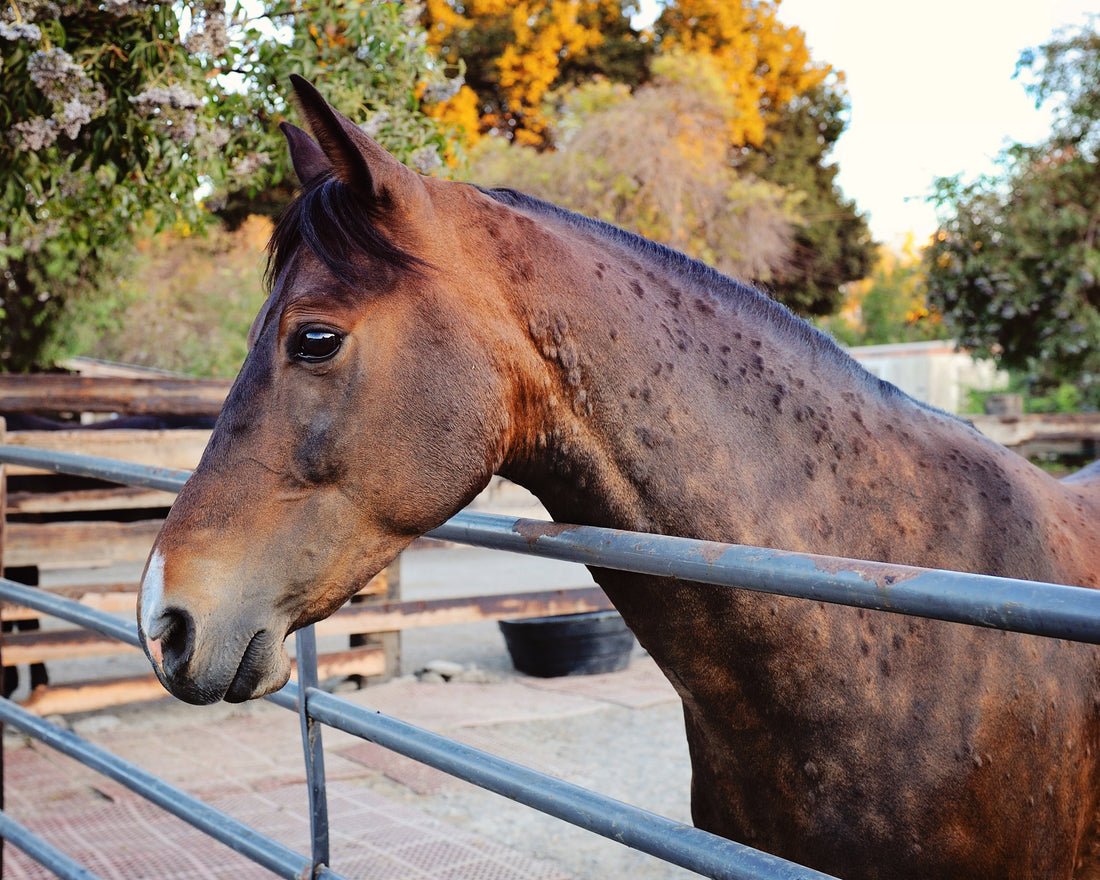
Managing Seasonal Allergies in Horses
Allergies are a common problem in horses, affecting overall health, performance, and quality of life. In this post, I will discuss the common signs, possible irritants, and approaches to finding and treating the allergen.
What causes allergies in my horse, and what should I watch for?
There are many possible causes of allergies. Anything in the environment that the horse ingests, breaths in, or touches can be a potential allergen.
Sometimes, a single incident causes a reaction, such as a bee sting or exposure to a grooming product that sets off the immune system. It can also happen when your horse is exposed to something in the environment, such as hay, insects, or bedding.
Allergies occur seasonally, especially in the spring and summer, when insect exposure increases and tree and grass pollen counts increase. Some horses struggle with allergies year-round.
Common signs include excessive itchiness, hives, coughing, difficulty breathing (heaves), skin lesions along the lower midline (sweet itch), and hair loss from rubbing. Horses may also have swelling (edema) on the body or legs, swollen lymph nodes, and irritated eyes.
The main goal is always to identify and remove the cause of the allergen if possible.
Around the barn, there can be so many causes that lead to a horse developing or experiencing a recurring allergy. It could be a new load of shavings, or perhaps the hay has been sitting for a long time with mold or dust building up, leading to a horse developing a harsh cough. Those lovely, warm early spring days could result in bug bites that cause a sweet itch.
Any strong leads should be investigated and addressed by removing the suspected cause. Even if the cause seems obvious and easy to remove, the horse may need treatment to get the symptoms under control.
Modifying the environment can include changing feed, changing or eliminating bedding, and paying attention to any daily topically used products that could irritate the horses' immune system. Even if something is not new to the horse, the horse could develop an allergy, so anything is fair game.
Remember, it is also possible that the allergen is innate to the environment and can't be altered.
Sometimes, the cause of an allergic reaction is not easy to identify. In these cases, I typically treat the horse with medications to alleviate symptoms for about 1-3 weeks. When the horse completes the medication cycle, sometimes the problem will not recur. If the allergies do come back and continue to significantly affect the horse, I will re-investigate the environment or run tests on the horse, depending upon my findings.
Diagnosis and treatment of allergies
The diagnosis of allergies is based mainly on physical symptoms. It is essential to rule out other health issues that may show signs, such as infection, which could cause respiratory problems, swellings, etc. Your veterinarian can often do this with a thorough physical exam and possibly a routine blood panel. When deciding on a treatment plan, there are lots of options:
Antihistamines
Supplements
Allergy panel
Skin testing
Parting thoughts
Most horses that experience allergies can be helped with basic daily management including topical medications especially if caught and dealt with early before the immune reaction gets too out of hand. If chronic allergies develop, it is helpful to understand the pros and cons of the various treatment approaches.
- Dr. Sara Perkins
